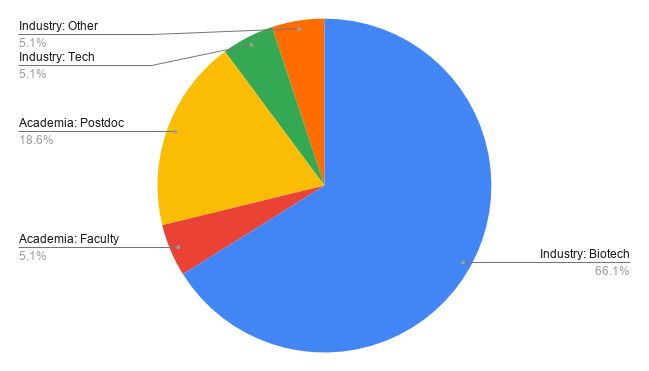The Bioinformatics and Systems Biology Program receives funding from the NIH-funded Institutional Training Grants in Bioinformatics (T32GM139790) to train students in the interdisciplinary areas of Bioinformatics and Systems Biology. Professor Shankar Subramaniam is the Principal Investigator on the training grant.
The Interdisciplinary Bioinformatics Graduate Program at UC San Diego was established in 2001 by a group of faculty led by Dr. Subramaniam. The mission of the program is to train a new breed of interdisciplinary researchers in the areas of Bioinformatics and Systems Biology. Research in the biomedical sciences requires solid quantitative training with a strong basis in new technologies. There is a need for specialized programs at this crossing point that foster quantitative thinking and aid the discovery process in biology. Understanding how genomes work requires sophisticated algorithmic and statistical techniques (bioinformatics) and new high throughput technologies for understanding the function of genes on a genome-wide scale. While there are also several other graduate programs emphasizing biology at UC San Diego, the Bioinformatics and Systems Biology Program is the only one that specifically emphasizes computing for solving biomedical problems. Throughout its existence, the Program has attracted some of the best students and is widely regarded as one of the most competitive graduate programs in the nation. For information about program requirements, please see our Admissions page.
Trainees
The current trainees supported by the training grant for 2025-26 are
- Galen Heuer
- Laura Hinojosa
- Michael Iter
- Deepti Murthy
- Jonah Pacis
- Madeleine Pittigher
- Safa Saeed
- Jonah Silverman
See past trainees and training grant funded publications.
Principal Investigator
Dr. Shankar Subramaniam, Distinguished Professor of Bioengineering, is the PI for the training grant. His laboratory is engaged in mammalian/human systems biology and medicine, with the focus of deciphering mechanisms, reconstructing context-specific networks, building computational models and predicting phenotypes. Dr. Subramaniam was elected Fellow of the American Association for the Advancement of Science and American Institute of Medical and Biological Engineering.
Training Grant Outcomes
Under the support of the training grant, the Bioinformatics and Systems Biology Graduate Program has successfully trained researchers and engineers to tackle the rapidly-evolving biomedical problems of the world. The graduates of the Program who were supported by the training grant have established themselves in both academia and industry, as illustrated here. In addition, outcomes (completion rates, time-to-degree at 5.5 years, career placement) of all BISB students are tracked by the campus and the Graduate Division with data available at: https://ir.ucsd.edu/stats/grad/index.html

Additional Resources
- NIH National Institute of General Medical Sciences
- NIH Bioinformatics and Computational Biology Predoctoral Research Training Program Institutions
- Bioinformatics and Systems Biology Graduate Program Admissions and Financial Support
- For students on the training grant: How to Cite the Training Grant
- Biomedical Informatics (BMI) Track Training Grant